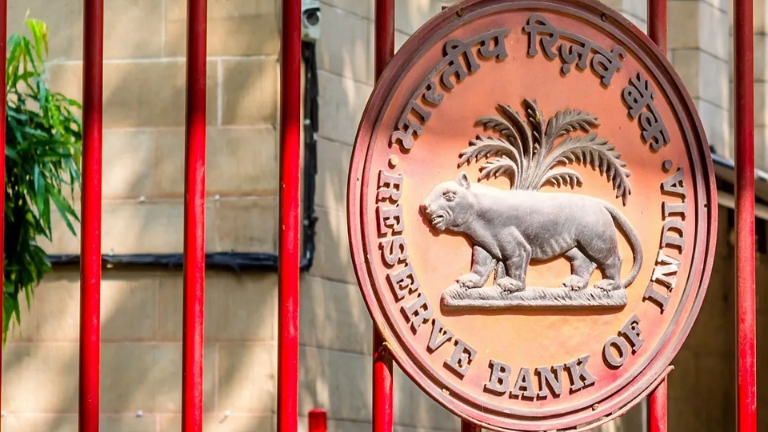RBI Cautions Against Excessive Unsecured Loans and Derivative Speculation
The Reserve Bank of India (RBI) has raised concerns over the growing trend of excessive unsecured borrowing and speculative enthusiasm in the derivatives market, urging financial sector entities to exercise caution against reckless financialization. RBI Deputy Governor M Rajeshwar Rao, speaking at a National Stock Exchange (NSE) event on Friday, underscored the need for responsible financial practices and increased financial literacy to ensure sustainable economic stability.
Red Flags on Unsecured Borrowing and Derivative Euphoria
Deputy Governor Rao expressed apprehension over the rising levels of unsecured loans and the increasing enthusiasm for derivative products, warning that short-term financial gains often come at the cost of long-term stability.
“Of late, we have seen some concerns of excessive borrowing in the unsecured segment and from derivative euphoria in the capital markets. The temptation of short-term gains can easily overshadow the long-term financial security of individuals,” he stated.
Rao emphasized that financial institutions bear a critical responsibility in ensuring that customers fully comprehend the risks associated with leveraged products and speculative investments. He urged financial entities to prioritize transparency and educate customers about the dangers of excessive risk-taking.
Caution Against Over-Reliance on AI in Financial Decisions
With financial institutions increasingly leveraging artificial intelligence (AI) and algorithm-driven decision-making, Rao also raised alarms about the risks associated with excessive dependence on technology in financial services.
“A less appreciated risk of AI-based decision models is ‘automation complacency,’ where people rely too much on technology, even when situations demand careful human judgment,” he remarked.
While AI and data analytics offer efficiency and valuable insights, he stressed that they should be viewed as tools to support human decision-making, rather than replace it. Rao cited the well-known phrase, “All models are wrong, but some are useful,” to emphasize the inherent limitations of AI-based decision models.
His remarks highlight a growing concern that financial institutions might become over-dependent on AI-driven risk assessment and investment strategies, potentially leading to unintended consequences during market volatility or financial crises.
Financial Inclusion: Beyond Account Opening to Meaningful Engagement
Shifting focus to financial inclusion, Rao acknowledged India’s significant progress in expanding financial access through initiatives like Pradhan Mantri Jan Dhan Yojana (PMJDY). He noted that 80% of Indian adults now have a bank account, a major milestone in financial accessibility.
According to the RBI’s Financial Inclusion Index, which measures financial access, quality, and usage, financial inclusion in India stood at 64.2 in March 2024, up from 60.1 in March 2023, and a substantial increase from 43.4 in 2017.
“India has made remarkable strides in financial access with PMJDY, enabling 80% of adults to own bank accounts. To date, 54.84 crore bank accounts have been opened under this scheme, with a total balance exceeding ₹2.45 lakh crore,” Rao stated.
However, he pointed out that simply opening a bank account is not enough. The true test of financial inclusion lies in meaningful engagement, where individuals actively use financial services such as credit, insurance, pensions, and investment opportunities.
“Without deeper engagement, financial inclusion remains superficial, and the true benefits of a formal financial system do not reach every individual or business,” he added.
The RBI is focusing on deepening financial inclusion, ensuring that economically vulnerable sections of society have access to affordable, secure, and beneficial financial products.
The Role of Financial Literacy in Strengthening the Economy
Rao emphasized that the growing complexity of financial markets makes financial literacy an essential tool in protecting consumers from fraudulent practices and reckless financial behavior.
“Increased financial literacy will help build trust in the financial system and its participants. While financial education protects individuals from fraud, it also benefits financial institutions by fostering a more informed customer base,” he noted.
According to Rao, financial literacy and investor education are not just responsibilities of regulators like the RBI but must also be embraced by financial institutions. The absence of financial knowledge often leads individuals to fall prey to fraudulent schemes or make uninformed investment decisions, which, in turn, erodes public trust in the financial system.
He further noted that regulation plays a crucial role in maintaining financial stability and preventing systemic risks. The RBI, along with other financial regulators, is taking progressive steps to educate customers, promote responsible borrowing, and mitigate speculative excesses in the financial markets.
A Call for Responsible Financial Practices
The Deputy Governor’s speech serves as a reminder to both financial institutions and investors about the importance of balanced financial growth, responsible lending, and informed investment choices. His key messages include:
- Caution against excessive unsecured lending and speculative trading in derivatives.
- The need for financial institutions to prioritize customer education on risks associated with leveraged investments.
- The risks of over-relying on AI and algorithm-driven decision-making in finance.
- The necessity of financial inclusion beyond account opening, ensuring active usage of financial services.
- The importance of financial literacy in protecting customers and maintaining market trust.
With India’s financial markets evolving rapidly, his cautionary note underscores the need for measured financial expansion, avoiding over-reliance on short-term gains while focusing on long-term economic resilience.
The Path Forward for India’s Financial Sector
As India continues its journey towards a more digitally inclusive and financially aware society, regulators, financial institutions, and policymakers must work together to ensure that financial growth is sustainable, responsible, and equitable.
The RBI’s focus on enhanced financial literacy, better regulatory oversight, and responsible AI usage will be instrumental in protecting investors, maintaining financial stability, and ensuring that financial inclusion translates into genuine economic empowerment.
The key takeaway from Rao’s message is clear: a financially literate, well-informed population is the cornerstone of a stable and resilient financial ecosystem. For both individuals and businesses, the emphasis must remain on long-term financial health rather than short-term speculative gains.







